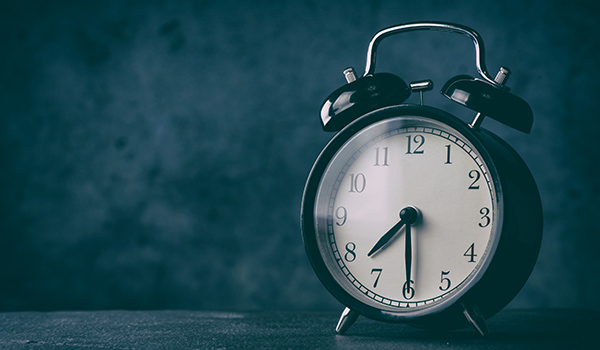
An alarm clock noise has been a staple of most American lives for decades. Whether you use actual alarm clocks with snooze buttons you can slam or you use the alarm clock on a smartphone, chances are you wake up with a loud buzzing sound so you can get to work early. But is waking up this way the best?
Have you noticed how waking up suddenly, especially if you haven’t had much sleep, can leave you feeling groggy and disoriented? A recent study by researchers in Melbourne, Australia showed how the type of alarm clock noise you’re waking up to could affect how groggy and disoriented you feel.
In today’s post, we’ll talk about that and the steps you can take to get better sleep and feel more refreshed.
Why you feel groggy when your buzzing alarm goes off
The grogginess you feel immediately after you wake up – and especially when you wake up suddenly from deep sleep – is called sleep inertia. We all go through some sleep inertia when we first wake up in the morning. However, it should dissipate within 15-30 minutes after we wake up.
For someone jolted out of their REM sleep however, sleep inertia can take longer to go away.
During the REM cycle of sleep, you have high levels of melatonin. Melatonin is a natural chemical in your body that allows you to fall and stay asleep. Because the level of melatonin is high during that cycle of sleep, it is likely it will take you much longer to get rid of sleep inertia if you are suddenly awakened.
And while this seems like something trivial, prolonged sleep inertia – sleep inertia can last up to 4 hours – will keep you from being productive. In the long term, this is costly for both an employee and an employer.
What does research say about sleep inertia and alarm clocks?
Using an anonymous self-reporting online questionnaire, researchers at the RMIT University in Melbourne, Australia studied how the type of noise people use on their alarm clocks affects sleep inertia.
The researchers found that participants who woke up to musical or melodic tones on their alarm clocks, reported feeling less groggy and more alert. The people who woke up to jolting, unmelodic alarm clocks were more likely to experience increased levels of sleep inertia.
These results were reported from a total of 50 participants and their ages ranged between 18-60 years old.
While the researchers still have a long way to go, this is one of the first studies that has looked at the impact on alarm clock noise and their impact on alertness after you wake up.
What does this mean for you?
There is already research from the Centers for Disease Control that 1 out of 3 adults in the United States reports not getting enough sleep. There are steps that you can take to make sure you get enough sleep so that you are alert and productive throughout your day.
Tips for getting better sleep so that you feel more refreshed include:
- Avoid caffeine at least two hours before bed
- Implement a night time sleep routine to prepare your body for bed
- Sleep earlier or
- Eliminate blue light from your sleep area.
However, based on these new results, you might also want to rethink your relationship with your alarm clock. Some of us are heavily dependent on an alarm clock and that is not necessarily a bad thing. However, if you find yourself increasingly tired and unable to focus at work because of sleep inertia, changing your alarm sounds from the unmelodic types to musical sounds could improve that.
And of course, you’d have to use them in conjunction with better sleep practices to get the best sleep possible.

